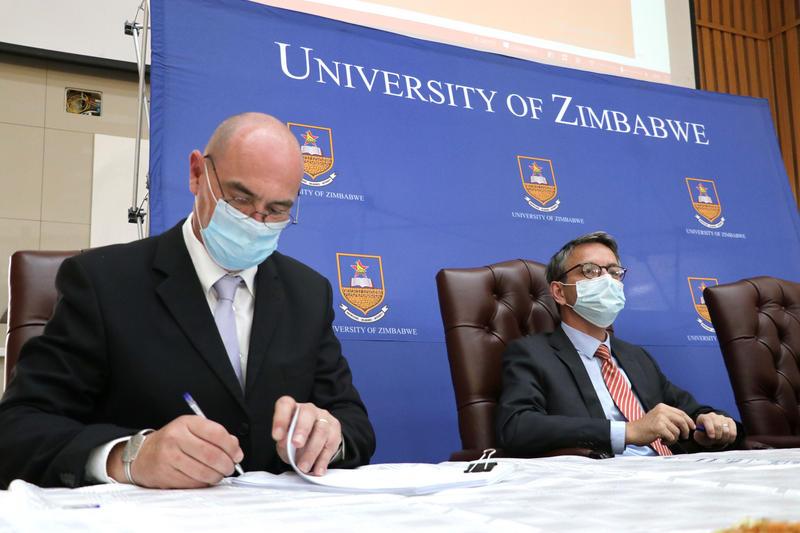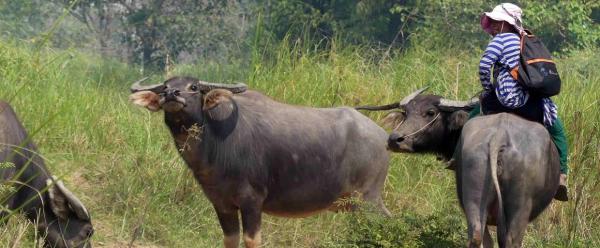- Home
- Press area
- Press releases
- PACMAN animal diseases zoonoses Zimbabwe
PACMAN project: developing sustainable management tools for zoonotic diseases in Zimbabwe

Mathieu Bourgarel, a CIRAD researcher and coordinator of the PACMAN project, signs the funding agreement, in the presence of the French Ambassador to Zimbabwe and the Dean of the University of Zimbabwe © Angela Jimu
The PACMAN project will complement the actions started by the CAZCOM project (Strengthening Zimbabwe's Capacity for Animal and Zoonotic Disease Control) funded by the French Ministry of Europe and Foreign Affairs FSPI (Solidarity Fund for Innovative Projects). CAZCOM contributed to the training of dozens of Zimbabwean staff working on zoonotic diseases and to the establishment of the aforementioned laboratory, in line with international standards, which was officially opened on 16 November. The PACMAN project will allow for a scale-up of current efforts. The implementation of the EU-funded LIPS (Livestock Production Systems Zimbabwe) project under the DeSIRA initiative (Development of Smart Innovation through Research in Agriculture) will also boost the impact and sustainability of the PACMAN project's actions.
This three-year project aims to set up a biomolecular platform to facilitate the control of animal diseases and support the country’s agricultural sector. Agriculture in Zimbabwe represents almost 15% of GDP and more than 30% of export revenues, and provides a direct or indirect livelihood for around 70% of the country's population. Zimbabwe is currently facing a food security challenge, due to increased drought frequency and arable land degradation, and rapid population growth. The livestock sector is threatened by the increasing prevalence of animal diseases and needs stronger veterinary systems to better control those diseases and estimate the risks linked to zoonotic diseases.
The PACMAN project has three main components:
- Strengthening Zimbabwe’s biotechnology capabilities and making them accessible
- Training partners in the latest molecular biology and serology techniques for disease surveillance and control, quality control and research
- Setting up an action, partnership, financing and sustainability plan for the biotechnology platform to ensure its operation and impact over the long term. The project will also set up a management and monitoring plan.
CIRAD, as funding beneficiary, will partner with the French National Research Institute for Sustainable Development (IRD), which also has recognized expertise in the field of setting up and operating biotechnology platforms. CIRAD will partner with the Faculty of Veterinary sciences of the UZ, which will host the platform on its campus (a Memorandum of Understanding with the University of Zimbabwe will be signed in that respect), and with the Department of Veterinary Services of the Ministry of Lands, Agriculture & Rural Resettlement.
The project's implementation will significantly improve the autonomy of Zimbabwe to detect and control diseases, which have a high economic impact, thus strengthening the resilience of the agricultural economy to the effects of climate change.



























